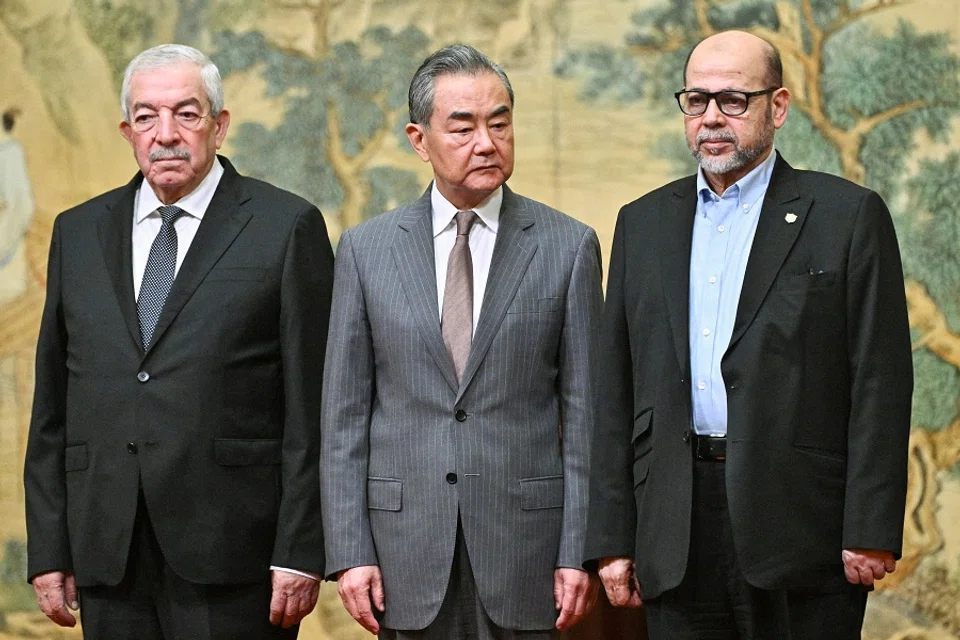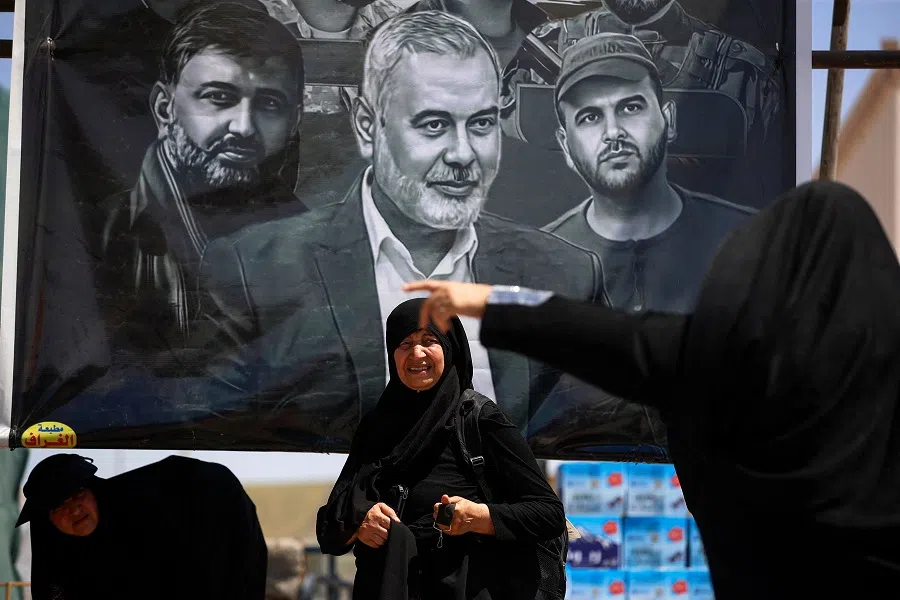China’s Gaza mediation: Diplomatic tightrope or path to peace?
China’s commitment to a neutral, inclusive and legitimising mediation approach to the Gaza conflict offers a unique path towards resolving one of the most intractable conflicts in modern history, says academic Hao Nan.

The recent assassination of Hamas political chief Ismail Haniyeh has added another layer of complexity to the Gaza conflict, highlighting the precarious nature of any peace efforts in the region.
Amid this turmoil, China’s mediation approach has emerged as a significant, albeit controversial, force. Hosting reconciliation negotiations in Beijing with 14 Palestinian factions in late July 2024, China facilitated the creation of the Beijing Declaration. This initiative underscores China’s commitment to a neutral, inclusive and legitimising mediation strategy, aimed at fostering peace and stability in the Middle East.
Neutrality stance a key plank of China’s approach
China’s mediation efforts in Gaza reflect its longstanding support for the Palestinian cause. Since the early days of the Palestinian national resistance, China has maintained diplomatic relations with the Palestine Liberation Organization (PLO) and the State of Palestine.
This historical context positions China uniquely in the ongoing conflict, allowing it to leverage its diplomatic ties and international standing to advocate for a two-state solution and humanitarian aid for Gaza. This backdrop of unwavering support has enabled China to position itself as a credible and reliable partner in the pursuit of peace.
The Beijing Declaration, though vague in its specifics, represents a step towards legitimising a unified Palestinian political front, a crucial element for any sustainable peace agreement.
At the heart of China’s mediation strategy is its stance of neutrality. Unlike many Western countries, China does not designate Hamas as a terrorist organisation, aligning its policy with United Nations and Arab League resolutions. This neutral position enables China to engage with all stakeholders, including Palestine, Israel, and the US, without the burden of historical biases or alliances. This neutrality is crucial in a conflict where even perceived biases can derail peace efforts. By maintaining this impartial stance, China can facilitate dialogues that might otherwise be impossible.
Inclusiveness is another cornerstone of China’s approach. The Beijing Declaration is a testament to China’s efforts to bring together diverse Palestinian factions, including Fatah and Hamas, under a unified political framework. By involving representatives from Egypt, Algeria, Saudi Arabia, Qatar, Jordan, Syria, Lebanon, Russia, and Turkey, China’s mediation efforts are marked by a broad-based and inclusive dialogue that seeks to address the concerns of all relevant parties. This inclusivity not only fosters a sense of collective ownership of the peace process but also ensures that all voices are heard and considered.
Legitimising the narrative of a unified Palestinian political front
China’s role as a legitimiser in the Gaza conflict is also significant. Through its permanent membership in the United Nations Security Council (UNSC) and its leadership in various international forums, China has the authority and influence to push for resolutions and peace initiatives.
The Beijing Declaration, though vague in its specifics, represents a step towards legitimising a unified Palestinian political front, a crucial element for any sustainable peace agreement. By leveraging its position in the UNSC, China can advocate for international support and recognition of the agreements reached.

The assassination of Ismail Haniyeh by suspected Israeli operatives complicates China’s mediation efforts. Haniyeh’s death not only threatens to destabilise the fragile unity among Palestinian factions but also signals a potential escalation in the conflict.
This incident underscores the risks inherent in China’s mediation strategy, where any progress can be swiftly undermined by acts of violence and retaliation. It also highlights the need for robust mechanisms to protect the integrity of peace negotiations and their participants.
By positioning itself as a peacemaker, China aims to enhance its moral standing and influence in the region, potentially isolating the US diplomatically.
Mixed reactions from the international community
Despite these challenges, China’s mediation efforts have garnered mixed reactions internationally. The EU acknowledged China’s role in bridging divisions among Palestinians but stressed the need for concrete implementation of the Beijing Declaration. Russia welcomed the agreement, expressing readiness to assist further in coordination with China. In contrast, the US and Israel rejected the declaration, reflecting their scepticism towards any Palestinian government that includes Hamas. This divergence in responses underscores the geopolitical complexities surrounding the Gaza conflict and the varying interests of international actors.
China’s proactive diplomacy in Gaza and the broader Middle East is part of its strategic manoeuvring amid the global rivalry with the US. By positioning itself as a peacemaker, China aims to enhance its moral standing and influence in the region, potentially isolating the US diplomatically.
This strategy also aligns with China’s economic interests under the Belt and Road Initiative, seeking opportunities in post-conflict reconstruction and regional development. The promise of economic investment and development aid adds an attractive dimension to China’s mediation efforts, potentially swaying regional actors to support its initiatives.
The future of China’s mediation in the Gaza conflict remains uncertain. The success of the Beijing Declaration in fostering Palestinian unity and achieving peace depends on multiple factors, including the willingness of Palestinian factions to cooperate, the reaction of Israel and the US, and the broader geopolitical dynamics.
However, China’s commitment to a neutral, inclusive and legitimising approach offers a unique path towards resolving one of the most intractable conflicts in modern history. If successful, China’s efforts could redefine the landscape of Middle Eastern diplomacy and set a new precedent for international conflict resolution.





